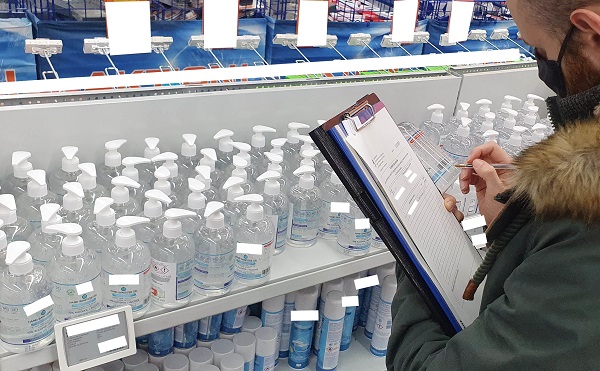 Credit: Environment Agency
Credit: Environment Agency
Luxembourg's Environment Agency has announced new restrictions on the marketing and sale of products containing diisocyanates from Thursday 24 February 2022, as part of the Euopean Union (EU) Regulation 2020/1149.
Diisocyanates are chemicals used as building blocks in a wide range of industries and applications, including but not limited to polyurethane foam insulation, sealants and coatings.
At present, the sale of products containing diisocyanates is already severely restricted for private use by Regulation 552/2009. For example, their packaging must contain protective gloves if the product contains a concentration equal to or greater than 0.1% of MDI by weight. In addition, the packaging must mention several safety provisions concerning human health in particular.
Starting 24 February 2022, only products with a diisocyanate concentration of less than 0.1% by weight can be sold directly to professionals.
If the concentration of diisocyanates is greater than 0.1% by weight, the supplier must provide various information provided for by the restriction and the statement "As of 24 August 2023, adequate training is required before any industrial or professional use".
Hence, this training becomes mandatory for professional users of diisocyanates from 24 August 2023. The content and elements of this training are specified in the Grand-Ducal regulation.
The European Chemicals Agency estimates that this restriction will help reduce the number of occupational asthma cases by more than 3,000 new cases per year.
This new restriction mainly concerns construction companies, installers and roofers working with this type of product and is complementary to the existing restriction which limits the use of products containing diisocyanates for the general public (regulation 552/2009). However, some suppliers do not respect that the products are intended for professional use and they also sell the product to individuals. It is important to note that without proper protective equipment and if the products are used incorrectly, diisocyanates pose a risk to human health. Diisocyanates are very irritating to the lungs, the mucous membranes of the eyes and the gastrointestinal tract.
There is a particular risk of sensitisation when an employee comes into contact with the substance, he may develop a sudden allergy to the product after a certain time. If further exposed, severe allergic reactions and respiratory problems may occur.
Checks of products containing diisocyanates have already been carried out at points of sale of building materials by agents of the Environment Administration. During these checks, they recorded the compliance of the chemical products as well as compliance with the sale reserved for professional users. These activities will be continued after the entry into force of the new restriction and additional check may be carried out at any time with the suppliers concerned.
The information concerning the checks can be consulted here: https://environnement.public.lu/fr/chemesch-substanzen/info-sensiblisation/controles-uscp-annuels.html
Further information on dissocyanates is available here: https://www.reach.lu/fr/support/centre-de-ressources/actualites/actualites-detail/restriction-sur-les-diisocyanates/ and professionals can consult www.reach.lu
The Environment Agency also published the 2020-2021 review of chemical substances and products checks. Of 481 items checked at 61 outlets, 401 were disinfectants. In addition, batteries and products containing volatile organic compounds have been checked.
As in the previous year, particular attention was paid to disinfectant products. 67 inspections were carried out at 46 companies in Luxembourg. A total of 185 items sold in physical outlets and 64 items sold via online shopping portals (webshops) were checked.
The inspection agents were able to detect 259 non-compliant products, which is equivalent to a non-compliance rate of 65%. The non-conformities detected mostly consisted of breaches of the terms of the transitional national regime for the registration of biocidal products.
Other offenses related to the provision and use of unauthorised biocidal products, the incorrect labeling of products, the presence of illegal substances or even unauthorised uses.
A total of 25 administrative fines totaling €61,000 were produced and the public prosecutor's offices of the respective districts seized products in eight cases. 128 follow-up checks were carried out to verify whether companies complied with the bans on the sale and placing on the market of their non-compliant products, imposed in 2020.
In order to check the chemical composition, the content of volatile organic compounds and the correct labeling of various everyday products, the Environment Agency also checked batteries, packaging, sports and childcare articles, as well as thermal paper. This was both in physical points of sale and on online sales platforms.
The inspection report can be found on www.emwelt.lu








